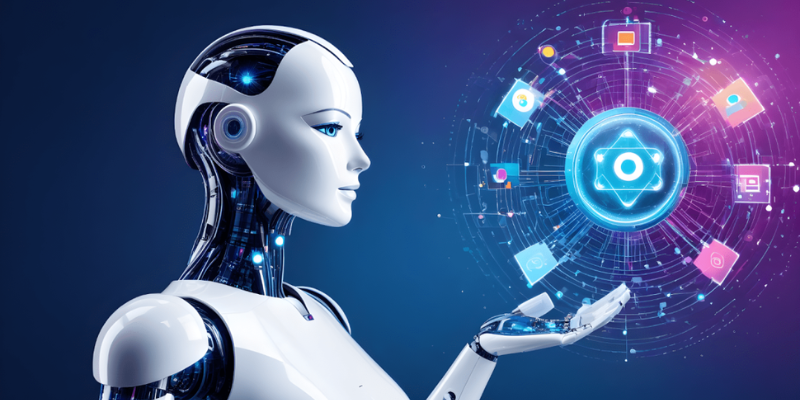
In today’s fast-paced digital economy, data has emerged as the most valuable asset for organizations. Yet, having data is only half the battle—making sense of it and turning it into actionable insights is where the real challenge lies. This is where Artificial Intelligence plays a transformative role. By leveraging AI technologies, businesses are not just analyzing data—they’re making smarter, faster, and more strategic decisions.
From automating processes and predicting customer behavior to detecting fraud and optimizing operations, AI has revolutionized how businesses operate. With the growing demand for AI-driven strategies, professionals are turning to specialized training programs like the Artificial Intelligence Course in Pune to develop critical skills for data-centric decision-making.
The Role of AI in Decision-Making
AI makes it possible for robots to replicate human intellect and carry out functions like learning, reasoning, problem-solving, and decision-making. When applied to business data, AI can extract patterns, spot trends, and provide recommendations with greater speed and accuracy than traditional analytics.
One of the most impactful applications of AI is in predictive analytics. For instance, AI algorithms can forecast future sales, customer churn, or inventory requirements based on historical data. This empowers leaders to plan effectively and reduce uncertainty in strategic decisions.
Key Benefits of AI in Business Decision-Making
1. Improved Accuracy and Efficiency
By swiftly and reliably evaluating enormous volumes of data, AI lowers the possibility of human mistake. Machine learning models can uncover patterns and anomalies that human analysts might overlook. This leads to more accurate forecasts and informed decision-making.
In cities like Gurgaon, where businesses are accelerating digital adoption, there is rising interest in enrolling in AI Courses in Gurgaon. These programs empower professionals to leverage AI for accuracy and efficiency in everyday business decisions.
2. Real-Time Insights
In a competitive market, real-time decisions can create a significant edge. AI systems can process streaming data—such as customer interactions, social media activity, or transaction logs—and provide insights on the fly. This allows businesses to respond proactively to changing conditions.
From marketing adjustments to dynamic pricing strategies, real-time AI-driven insights are shaping operations across sectors.
3. Personalized Customer Experiences
AI helps businesses understand individual customer preferences and behavior, enabling hyper-personalization. Recommender systems, chatbots, and AI-powered CRMs tailor experiences that improve engagement and loyalty.
As customer experience becomes a key differentiator, professionals are looking to upskill with tools like Natural Language Processing and customer behavior analytics—topics well-covered in the Artificial Intelligence Course.
4. Enhanced Strategic Planning
AI can simulate multiple scenarios and their potential outcomes, assisting leaders in making informed strategic decisions. launching a new product or breaking into a new market, or managing supply chain disruptions—AI offers data-backed confidence.
Strategic forecasting tools and AI-based simulations are featured in leading Artificial Intelligence Courses in Hyderabad, designed to align tech with executive decision-making needs.
Popular AI Tools and Technologies for Decision-Making
1. Machine Learning (ML)
ML is at the core of AI-driven decision-making. Algorithms learn from data and improve over time. From predicting customer churn to identifying fraud patterns, ML models are used across industries.
2. Natural Language Processing (NLP)
Machines can comprehend and process human language thanks to NLP. Businesses use NLP to analyze customer feedback, extract insights from documents, and automate support through chatbots.
3. Computer Vision
This AI technology helps businesses interpret visual data. Retailers use it to monitor customer behavior in-store, while manufacturers rely on it for quality control in production lines.
4. Robotic Process Automation (RPA)
RPA automates repetitive tasks, allowing employees to focus on higher-value work. It’s widely used in finance, HR, and customer service to streamline operations and reduce costs. As businesses seek greater efficiency, the integration of RPA highlights how artificial intelligence is important for a productive industry, enabling smarter workflows and increased output.
Real-World Examples of AI-Driven Decisions
1. Retail Industry
Major retailers use AI to optimize inventory, recommend products, and personalize promotions. For example, Amazon’s recommendation engine is powered by machine learning that analyzes purchase history and browsing patterns.
2. Healthcare
AI supports faster diagnosis, treatment planning, and patient monitoring. Hospitals use AI to identify high-risk patients and improve outcomes through data-driven decisions.
The Artificial Intelligence Course in Mumbai includes healthcare analytics projects, helping professionals apply AI in clinical and administrative healthcare settings.
3. Banking and Finance
Banks use AI for fraud detection, credit scoring, and risk management. AI models analyze transaction patterns and flag suspicious activities in real-time.
4. Manufacturing
Predictive maintenance powered by AI helps manufacturers prevent equipment failures, saving time and cost. AI also assists in demand forecasting and supply chain optimization.
Future Outlook: AI and Business Intelligence
As AI continues to evolve, its integration with Business Intelligence (BI) platforms will deepen. Businesses will move from descriptive and diagnostic analytics toward more prescriptive analytics, where AI not only tells you what happened and why but also recommends the best course of action.
Artificial intelligence has evolved from a future idea to a modern need. AI is being used by companies of all sizes to maximize the value of their data, enhance decision-making, and maintain their competitiveness. AI and Machine Learning involve a lot of coding, which enables the development of complex algorithms for real-time analytics, personalized experiences, strategic planning, and automation. As a result, AI is reshaping how decisions are made across industries.